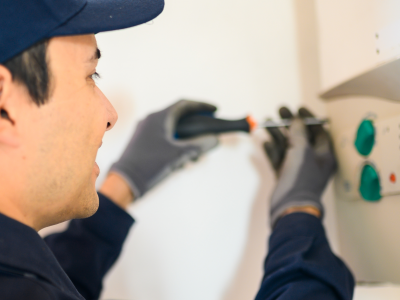Plumbing Assistant Training

What does a Plumbing Assistant do?
Plumbing assistants support plumbers in various tasks, including installing, maintaining, and repairing plumbing systems. They assemble pipes, ensure proper alignment, and assist in diagnosing issues. Additionally, they prepare work areas, organize tools, and follow safety protocols. Their role is vital in ensuring the smooth operation of plumbing projects while gaining valuable hands-on experience.
What does the Plumbing Assistant Program include?
The Plumbing Assistant Training is a comprehensive 9-week program designed to equip participants with the essential skills and knowledge needed for a successful career in plumbing. The course begins with an introduction to the role of a Plumbing Assistant, providing a foundational understanding of plumbing systems and commonly used materials. Participants will then delve into the practical aspects of the profession, learning about essential tools, safety practices, and basic plumbing skills such as cutting, connecting, and installing pipes. The program also covers advanced skills, including the installation and maintenance of water heaters and basic HVAC systems, along with instruction on reading blueprints and understanding plumbing codes. Hands-on workshops and practical training sessions offer participants the opportunity to apply their knowledge in real-world scenarios, preparing them for certification examinations. The program concludes with a discussion on potential career pathways in plumbing, emphasizing employment opportunities and advancement possibilities within the field.
Course Modules Outline:
- What is a Plumbing Assistant?
- Basic introduction to plumbing: understanding the purpose and system of plumbing, types of commonly used plumbing materials.
• Common plumbing hand tools: types, uses, and maintenance.
• Importance of safety practices: Personal Protective Equipment (PPE), emergency procedures.
• Cutting, connecting, and installing pipes appropriately.
• Basic troubleshooting techniques for common plumbing issues: leaks, clogs, and drips.
• Understanding different plumbing systems: septic, gas, drainage, water supply.
• Maintenance and minor repairs of sinks, toilets, and faucets.
• Installation, maintenance, and repair of water heaters and basic introduction to HVAC systems.
• Working with advanced plumbing machinery.
• Understanding and interpreting plumbing blueprints and schematics.
• Introduction to prevailing plumbing codes, standards, and ordinances.
• Comprehension of Drainage, Waste, and Vent (DWV) Systems.
• DWV pipe installation, maintenance, and repair.
• Hands-on workshop practice under supervision.
• Experience in real-time plumbing repairs and installations.
• Review of learned concepts using both written and practical examinations.
• Discussion about career pathways in plumbing, including advancement possibilities into a full plumber role.

